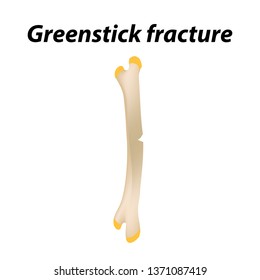Why Does Soft Tissue Treatment Pain? Recognizing The Refine
Why Does Soft Tissue Treatment Pain? Recognizing The Refine
Blog Article
Write- https://kyleruojcw.fare-blog.com/33201872/prepare-properly-for-your-sporting-activities-massage-and-find-exactly-how-interaction-can-unlock-a-much-deeper-level-of-healing-and-leisure-what-various-other-tricks-wait-for -Carstens Saleh
When you undertake soft Tissue therapy, you could find it surprisingly unpleasant. This discomfort arises as pressure is applied to strained muscles and damaged cells, activating your discomfort receptors. While https://gregorypkezt.get-blogging.com/33582832/sports-massage-therapy-techniques-explained-how-they-can-transform-your-training can feel distressing in the minute, there's a reason behind this feeling. Understanding what occurs in your body throughout these treatments can help you appreciate the procedure. So, exactly what is taking place beneath the surface area?
The Physiology of Discomfort Throughout Soft Tissue Therapy
When you go through soft Tissue therapy, your body's response to pain is a complex interaction of physiological processes. As the therapist applies pressure, your body turns on pain receptors, sending signals to your mind. This causes the launch of neurotransmitters, such as substance P and glutamate, which amplify the feeling of discomfort.
Your muscle mass may likewise tighten in response, further complicating the experience. On top of that, your body might release endorphins, all-natural pain relievers that can aid ease some pain.
you could try here between these processes can produce an unique experience for each individual. Understanding this physiological feedback helps you navigate the sensations throughout therapy, enabling you to appreciate the balance between discomfort and the potential for healing advantages.
The Role of Pain in the Recovery Refine
Although discomfort during soft Tissue treatment can really feel frustrating, it plays an essential role in the healing process. When you experience pain, your body is signaling that it's working to repair damaged tissues. This feedback assists increase blood circulation to the afflicted location, providing essential nutrients and oxygen needed for healing.
Additionally, pain can advertise the release of endorphins, your body's all-natural pain relievers, producing a sense of alleviation post-treatment. Welcoming this discomfort can aid you comprehend your body's limits and urge you to address underlying concerns.
While it's uncomfortable currently, this procedure is crucial for lasting recuperation and enhanced feature. Recognizing pain as a vital part of healing can equip you to remain dedicated to your therapy.
Tips for Taking Care Of Discomfort During and After Therapy
Managing pain throughout and after soft Tissue therapy can considerably improve your general experience and healing.
To begin, connect freely with your specialist about your pain degrees; they can change techniques accordingly. Using deep breathing methods can also aid you unwind and relieve pain.
Think about using ice to the cured location post-session to lower swelling and numb pain. Remaining moisturized help in the healing procedure, so drink lots of water.
Mild extending and light movement after treatment can advertise blood flow and simplicity rigidity. Finally, guarantee you get adequate rest to enable your body to recover.
Implementing these tips can make your soft Tissue therapy more manageable and satisfying.
Final thought
Finally, while soft Tissue therapy can be uneasy, it's essential to acknowledge that this discomfort plays a crucial duty in your healing trip. By recognizing the physiological actions at play, you can approach the therapy with a much more favorable way of thinking. Keep in mind, the initial pain frequently paves the way to alleviation as your body launches endorphins. Embrace the process, and don't wait to make use of the ideas for handling discomfort to enhance your experience and recuperation.
